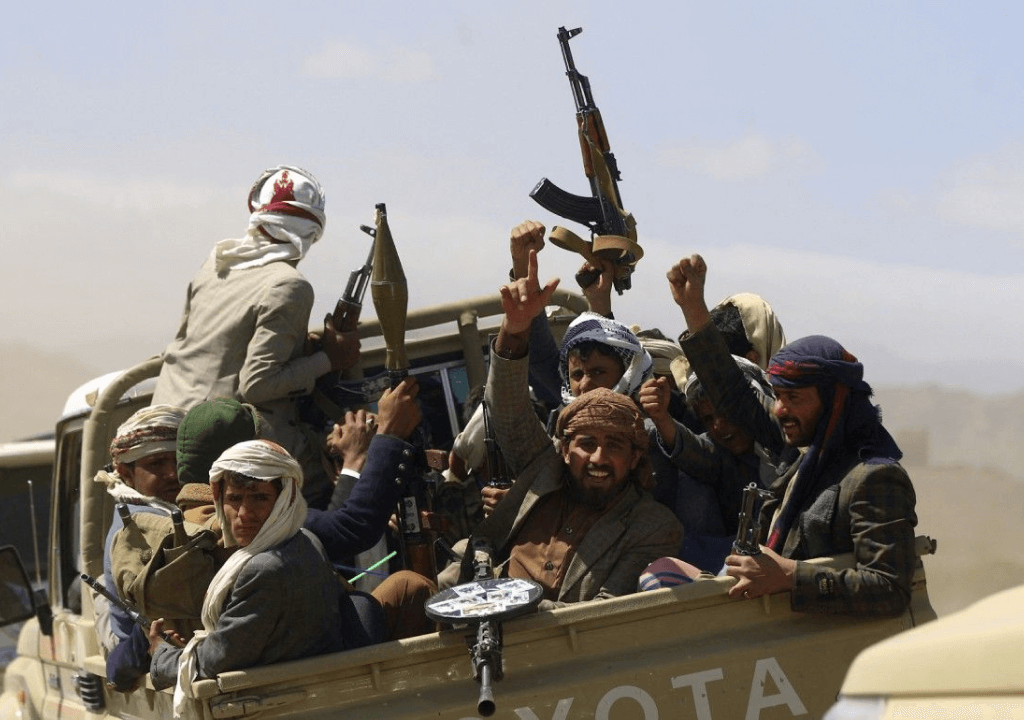Pro-Islamic and pro-Palestinian social media accounts across various platforms and countries are celebrating the Houthi militants claim of breaching Israel’s missile defense system and reaching central Israel, near Tel Aviv, with a modern ballistic missile. The reported strike on September 15th caused no casualties but captured headlines due to its strategic significance. A militant group from Yemen launched the missile over Saudi Arabia, breaching Israel’s renowned defense system and reaching the vicinity of Tel Aviv. For the Houthis, this was a notable achievement in their “Holy War”, one Israel likely did not anticipate. However, this development has heightened tensions in Saudi Arabia, the leading nation in the Islamic world and home to its most sacred sites. Saudi Arabia, already engaged in conflict with the Houthis, now faces an increasing security risk. The Houthis striking capabilities and resilience represent a significant threat to the Kingdom of Saudi Arabia.
Saudi Arabia, a Sunni-majority Islamic nation that supports Yemen’s official government in its battle against the Shia-majority Houthis, believes that Iran, a Shia power, has been supplying arms to the group and is convinced that the recent strikes were carried out with Iran’s assistance, despite the Houthis claiming they used homemade weapons. The Sunni-Shia conflict has deep historical roots, spanning centuries of violence and mutual hostility, much like the long-standing conflict between Muslims and Jews. Now, Saudi Arabia views the recent Houthi attacks as a growing threat to its own security. The Houthis advanced capabilities, including their weapons and technology, have surprised many observers. Additionally, the group’s involvement in attacks on commercial shipping in the Red Sea has significantly reduced traffic on this crucial route, leading to increased maritime transport costs and disruptions to the global economy by affecting the Suez Canal. Given these impacts, Saudi Arabia presented Houthis as not just a regional threat, but a global one.
In Sana’a, the capital of Yemen and a Houthi stronghold where the rebel group coordinates its attacks on shipping, the leadership celebrated Sunday’s missile strike on Israel, which landed in an open area near Ben Gurion International Airport. They hailed the strike as a breakthrough, attributing it to the efforts of Yemeni technicians, and vowed that more attacks would follow. Prior to the strike, the Houthis had issued warnings of an impending assault on Israel. Previous missile attacks by the group had failed to penetrate deep into Israeli airspace, with one missile in March landing in an open area near the Red Sea port of Eilat. In July, an Iranian-made drone attack on Tel Aviv killed one person and wounded ten others. During Sunday’s strike, Israel activated its Arrow and Iron Dome defense systems, though it remains unclear whether any of the interception attempts were successful.
Saudi Arabia now faces an urgent need to take stronger action against the Houthis, as the threat they pose could be as significant to the kingdom as it is to Israel, if not greater. A potential attack on Saudi territory is a growing concern, especially given previous incidents. The kingdom also wants to prevent the Houthis from gaining further support and enhancing their reputation for bravery in the name of Islam. If the Houthis gain more support in Yemen, the Saudi-backed official government could be in jeopardy. However, before launching any strikes, Saudi Arabia is likely to seek U.S. approval, and more military operations are anticipated. Saudi leaders are calling for a more robust approach than mere pinprick bombings to effectively sever the Houthis supply lines.
Saudi Arabia has also pointed to Iran’s interference in Arab nations such as Lebanon, Syria, Iraq, Yemen, and Palestine, expressing disappointment that Tehran has failed to uphold the diplomatic agreement it reached with Saudi Arabia in China two years ago. The kingdom had hoped Iran would take a more proactive role in fostering regional stability and resolving disputes, not just with Saudi Arabia but across the broader region. However, the escalating tensions are likely to exacerbate the Middle East crisis, potentially drawing in additional parties, including the U.S. and the U.K. The Houthis are likely to receive more support, and Saudi Arabia may bear higher costs than Israel in this situation.








